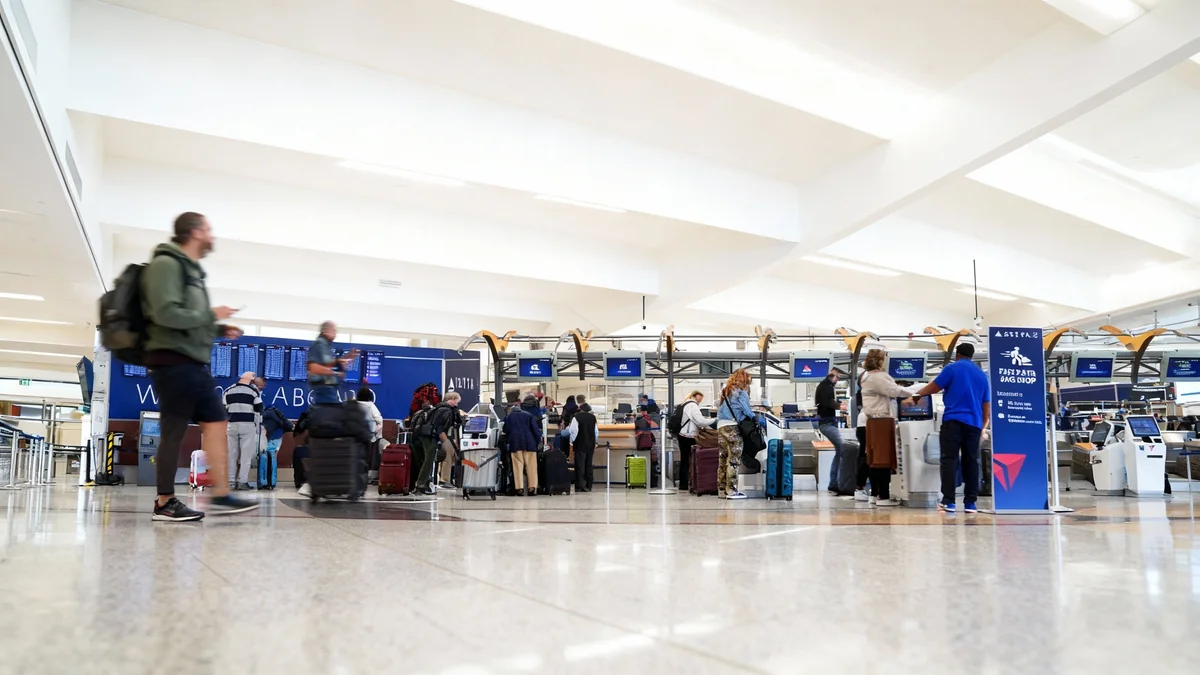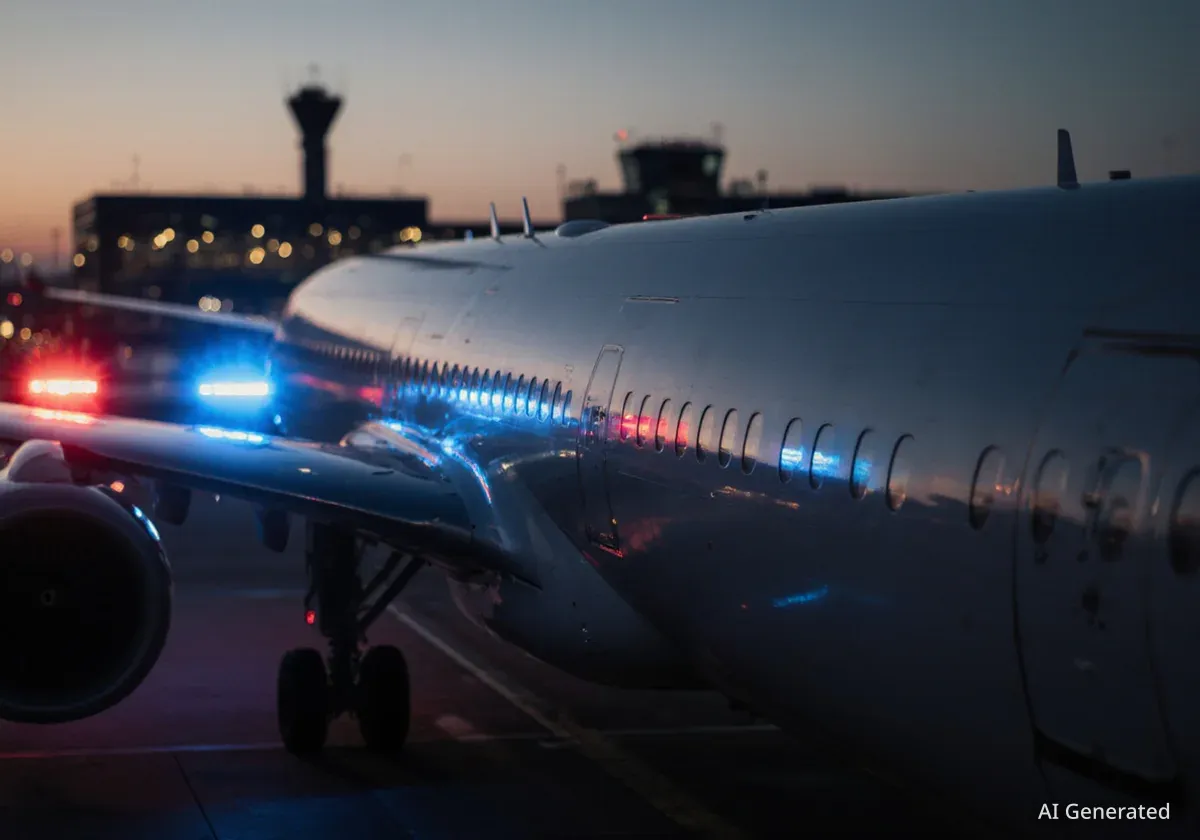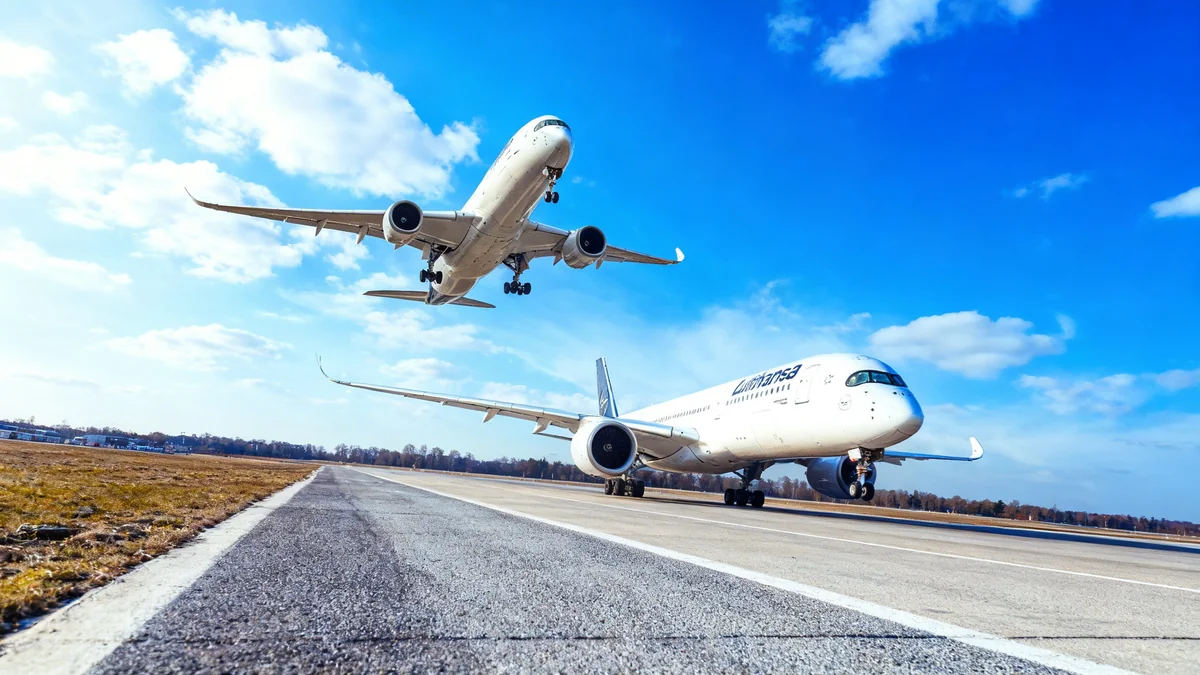A bipartisan group of 18 senators is calling on the current administration to reconsider its decision to abandon a previous plan. This plan would have required airlines to provide cash compensation to passengers for flight disruptions caused by the carriers themselves. The senators emphasize that airlines should be held accountable for inconveniencing travelers.
The original proposal, introduced in December by the U.S. Department of Transportation (USDOT) under the Biden administration, aimed to mandate cash payments of up to $775 per passenger. These payments would cover delays directly attributable to airline operational issues, not external factors like weather.
Key Takeaways
- 18 senators urge Trump administration to reinstate airline compensation plan.
- Original plan sought up to $775 cash compensation for airline-caused delays.
- USDOT plans to drop compensation and reconsider fee disclosure rules.
- Airlines support the move to reduce regulatory burdens.
The Proposed Compensation Rule
The initial rule, put forth by the Biden administration's USDOT, opened a public comment period to gather feedback on the feasibility and impact of such a compensation system. The core idea was to address the financial burden passengers face when airlines cause significant flight disruptions.
This could include costs like unexpected overnight stays, missed connections, or lost wages. The proposed maximum compensation of $775 per passenger aimed to alleviate some of these unforeseen expenses.
Did You Know?
Many European countries already have regulations that require airlines to compensate passengers for significant delays or cancellations. For example, under EU Regulation 261/2004, passengers can receive up to €600 (approximately $635 USD) depending on the flight distance and delay length.
Administration's Shift in Policy
Last month, the current USDOT announced its intention to discontinue the compensation plan. This move signals a significant shift from the previous administration's focus on enhanced consumer protections in air travel. The department stated it is also looking at rescinding other Biden-era regulations.
One such regulation required airlines and ticket agents to clearly display service fees alongside airfares. This transparency measure aimed to give consumers a complete picture of flight costs upfront, preventing hidden charges.
"This is a common-sense proposal: when an airline’s mistake imposes unanticipated costs on families, the airline should try to remedy the situation by providing accommodations to consumers and helping cover their costs," the senators wrote in their letter.
Senators Express Concern
The letter, signed by 18 Democratic senators, including Maria Cantwell, Ed Markey, Ron Wyden, Kirsten Gillibrand, and Jack Reed, underscores the importance of consumer protection. They argue that airlines should bear responsibility for their operational failures that lead to passenger inconvenience and financial loss.
The senators believe that without such a rule, passengers are often left to cover costs that are not their fault. This creates an unfair burden on travelers who have little control over airline operations.
Reasons for Reconsideration
A spokesperson for Transportation Secretary Sean Duffy did not immediately provide a comment. However, previous statements from the department indicated that some rules proposed or adopted under the Biden administration "went beyond what Congress has required by statute."
The current administration intends to "reconsider those extra-statutory requirements." This suggests a move towards reducing what they perceive as excessive regulatory burdens on the airline industry.
Background on Airline Regulations
The U.S. Department of Transportation (USDOT) is responsible for overseeing the nation's transportation systems, including airlines. Its role includes ensuring safety, promoting economic growth, and protecting consumer rights. Regulations often balance these objectives, sometimes leading to differing approaches between administrations.
Broader Regulatory Changes
Beyond the compensation plan, the USDOT is also working on other regulatory adjustments. These include efforts to reduce the overall regulatory burden on airlines and ticket agents. New rules are being drafted to clarify the definition of a flight cancellation, which determines when consumers are entitled to ticket refunds.
Additionally, the department is revisiting existing rules concerning ticket pricing and advertising. These changes could impact how airlines market their fares and what information they are required to disclose to passengers.
Airline Industry Response
Airlines have largely welcomed the administration's decision to rescind the Biden plan. They have consistently advocated for fewer regulations, arguing that extensive rules can increase operational costs and stifle innovation. The industry has pushed for the Trump administration to take further steps in this direction.
This action aligns with other recent moves. For instance, in May, the Justice Department dropped a lawsuit against Southwest Airlines. The Biden administration had filed this lawsuit in its final days, accusing the carrier of illegally operating chronically delayed flights. This shows a broader trend of regulatory easing for the aviation sector.
Impact on Travelers
The potential removal of the compensation plan could have direct implications for travelers. Without a mandated cash compensation scheme, passengers might continue to face significant out-of-pocket expenses when airlines cause delays or cancellations. This places the financial risk predominantly on the consumer.
Consumer advocacy groups often argue that clear compensation rules incentivize airlines to improve their operational reliability. They believe that without such incentives, airlines may have less motivation to invest in measures that reduce delays and cancellations.
- Passengers may absorb more costs from airline-caused disruptions.
- Airlines could face fewer financial penalties for operational issues.
- Transparency in fee disclosure might decrease without prior regulations.
The debate highlights a fundamental tension between consumer protection and deregulation in the airline industry. As the administration moves forward with its plans, the long-term effects on air travel and passenger rights remain a key point of discussion.





